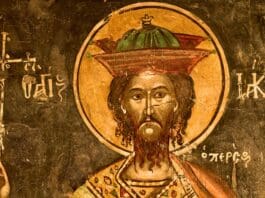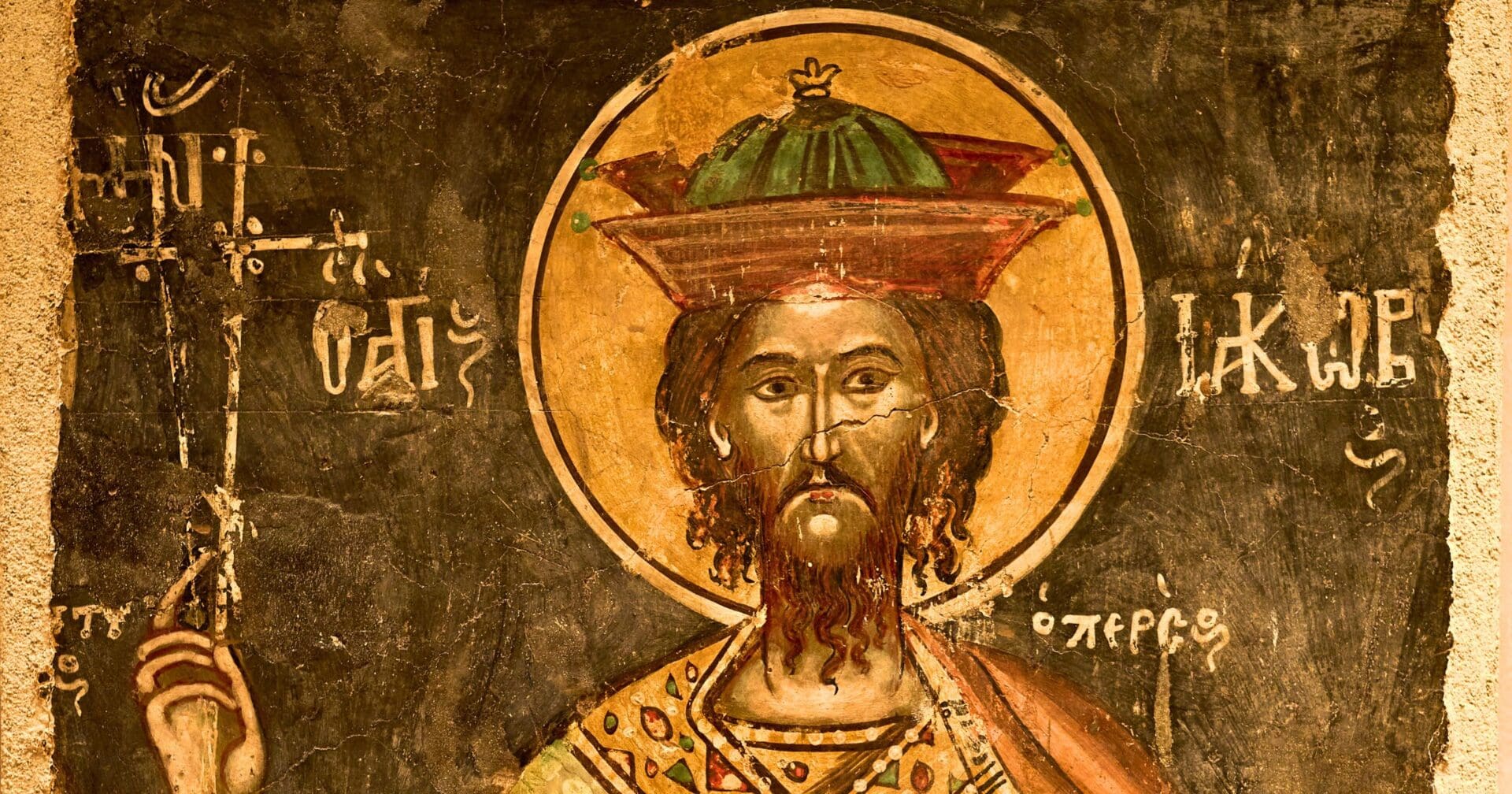
Saint James Intercisus was a prominent figure in 5th century Persia, known for his dramatic conversion story and subsequent martyrdom.
Initially a favorite of King Yezdigerd I, James faced a moral crisis when the king began persecuting Christians. Fearing the loss of royal favor, James initially abandoned his Christian faith, causing great distress to his family. However, the death of King Yezdigerd and a poignant letter from his wife and mother prompted a profound change in James.
With renewed conviction, James distanced himself from the royal court and openly admitted his mistake in renouncing his faith. When summoned by Yezdigerd’s successor, James boldly confessed his Christianity. His response to accusations of ingratitude was calm but assertive, and he faced threats of a gruesome death with equanimity, declaring his willingness to die for eternal life.
James’s martyrdom was particularly brutal; he was executed by being dismembered into 28 pieces, starting with his fingers, earning him the name “Intercisus,” which means “cut to pieces.” Throughout this ordeal, he continually professed his faith, affirming his belief in the resurrection. His death in 421 became a powerful symbol of steadfast faith.
In honor of his sacrifice, the Church of St. James Intercisus was established in the Armenian Quarter of Jerusalem.
Photo credit: George E. Koronaios CC BY-SA 4.0, via Wikimedia Commons
The post Saint James Intercisus appeared first on uCatholic.
Daily Reading
Wednesday of the First Week in Ordinary Time
Reading I Hebrews 2:14-18 Since the children share in blood and Flesh, Jesus likewise shared in them, that through death he might destroy the one who has the power of…
Daily Meditation
Ripples in a Pond
Click here for daily readings There is something captivating about tossing stones into a pond or lake. Maybe it is the disappearance of the stone as it plops into the…




